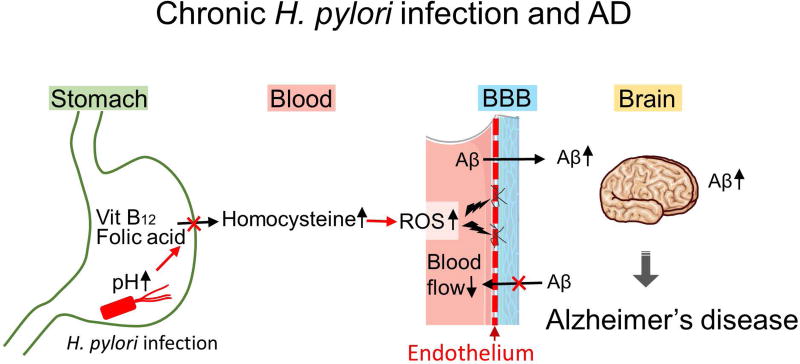Figure 2.
H. pylori infection may contribute to progression of Alzheimer’s disease (AD). Chronic H. pylori infection has been known to increase gastric pH. This pH change decreases absorption of vitamin B12 and folic acid absorption, while it increases the blood homocysteine level. Auto-oxidation of homocysteine generates reactive oxygen species (ROS), which damages vascular endothelial cells, leading to blood-brain barrier (BBB) dysfunction and blood flow reduction. BBB dysfunction can not only increase the accumulation of amyloid-β (Aβ) from the periphery, but also decrease the clearance of Aβ from the brain, contributing to progression of AD.

